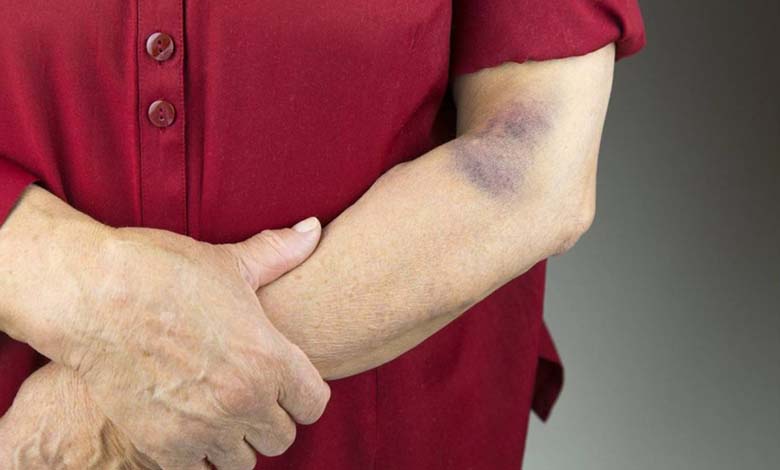Causes of Bruising in Elderly People

Bruising is common among the elderly. While most bruises are harmless and disappear without treatment, they can sometimes be a sign of a more serious health issue.
-
Reasons Why Elderly People Act Like Children
-
What to Know About Vitamin B12 deficiency in the elderly
Why do elderly people bruise easily?
According to Mayo Clinic, most bruises occur when small blood vessels (capillaries) near the surface of the skin break due to a blow or injury, often on the arms or legs.
When this happens, blood leaks from the vessels, initially appearing as a dark mark. Eventually, the body reabsorbs the blood, and the mark fades away.
Some people, especially women, are more prone to bruising than others. As people age, their skin becomes thinner and loses some of the protective fat layer that helps shield blood vessels from injury.
-
Fish oil protects the elderly from Alzheimer’s Disease
-
What is the secret of the chemistry between grandparents and their grandchildren?
Can medications and supplements contribute to bruising?
Doctors point out that certain medications may contribute to easy bruising by reducing the blood’s ability to clot. These medications include aspirin, ibuprofen (Advil, Motrin IB, etc.), naproxen sodium (Aleve), as well as anticoagulants like warfarin (Jantoven), dabigatran (Pradaxa), and rivaroxaban (Xarelto). Antiplatelet drugs such as clopidogrel (Plavix), prasugrel (Effient), and ticagrelor (Brilinta) are also implicated.
Some antibiotics and antidepressants may also be linked to clotting issues. As a result, bleeding from damaged small blood vessels near the skin’s surface may take longer than usual to stop, allowing enough blood to accumulate under the skin to cause a bruise.
When do bruises become a more serious issue?
Easy bruising can sometimes indicate an underlying serious condition, such as a blood clotting disorder or a blood disease. Experts advise seeing a doctor in the following cases:
- Large, frequent bruises on the torso, back, or face, or bruises that seem to develop without any apparent reason.
- Bruises accompanied by a history of excessive or prolonged bleeding, such as after a minor cut or during surgery.
- The sudden appearance of bruises, especially after starting a new medication.
- A family history of easy bruising or bleeding.












